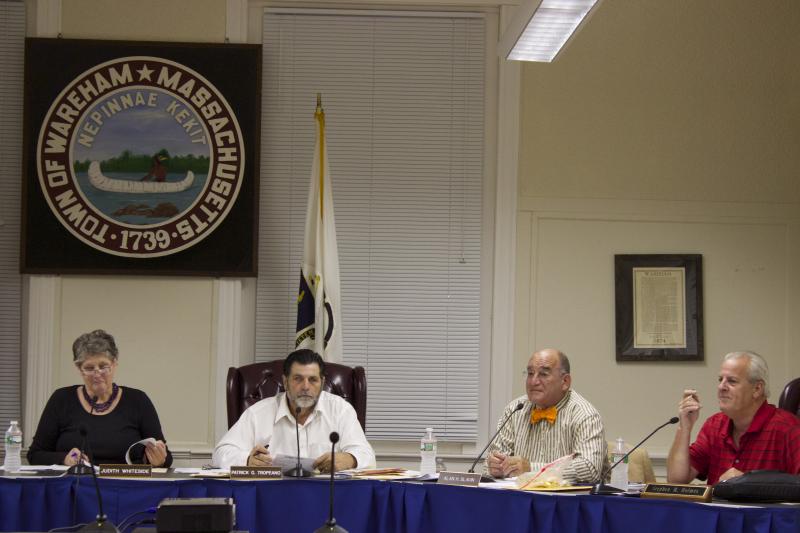Selectmen plan to tweak EDU system
While Selectmen will likely adopt a new way of charging sewer fees in the near future, they are looking at ways to make the current system more equitable.
Selectmen agree there are instances of businesses that are overcharged as well as those that are undercharged under the current EDU system.
The owner of Meineke in East Wareham has written Selectmen several times claiming he has been overcharged. His sewer bill has jumped from $1,490 for 2012 and 2013 combined to $4,783 this past January.
Currently, Wareham sewer users pay a flat annual $596 per EDU (equivalent dwelling units). A single-family home is charged one EDU, while a two-unit duplex is generally charged two EDUs. Businesses are scheduled similarly. For example, restaurants are charged one EDU per 12 seats; gas stations are charged one EDU per service island.
Selectmen voted to keep the current system at the $596 EDU rate for at least another year at their meeting on June 17.
The owner of Meineke added two service bays to his shop ten years ago. Under the EDU rate, he should have been paying this increased bill since then.
"The town has been subsidizing this business for ten years," Selectman Steve Holmes said at a meeting in February.
But Selectman Patrick Tropeano said this increase was unfair because the shop owner's water usage was likely well under the minimum, but he had to pay this high amount because of the flat fee system and other oddities in the EDU rate formula.
"He uses 50 gallons of water a day," said Tropenao. "We all know that this is not equitable." He added, "Even if you decide he isn't paying enough, you don't put all that on him on one year."
Selectmen, along with Guy Campinha, director of the Wareham Water Pollution Control Facility, decided that instead of granting abatements to individual businesses or corporations, they would tackle the problem at the source. Different types of businesses have certain rules and rates under the EDU system, so Selectmen now plan to adjust certain categories of the system.
"You cannot cherry-pick a business, corporation or individual. It's not good process and it's not fair to the other people who are living under the same constraints," said Selectman Judith Whiteside.
Whiteside and Selectman Chair Alan Slavin proposed coming up with one or two categories that undercharge as well as one or two that overcharge under the EDU system. They said they'd discuss this possible solution at next month's sewer commissioners meeting.
Last month, Selectmen voted to allow Campinha to use data from Inspectional Services to bill restaurants, rather than the Board of Health, whose data has been used to bill restaurants since 2007.
The seating data (one of the factors of how restaurants are charged under the EDU system) from Inspectional Services is more accurate.
As for the owner of Meineke, he'll still have to pay the $4,783 when bills are due on Oct. 2.















